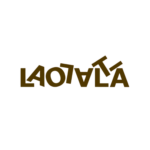The project addresses the need of crossborder and transnational cooperation between civil society actors in Romania and Moldova focusing on exchange of good practices related to LGBTI rights, community building, outreach and volunteers. These are underscored by similarities of contexts between Moldova and Romania in regards to the LGBTI community
Romania fairs extremely low in Europe when it comes to LGBTIQ rights and protection of LGBTI citizens. ILGA Europe’s annual ranking in terms of LGBTIQ inclusiveness places Romania on the 41st spot out of 49 nations and 25th out of 27 within the European Union (https://rainbow-europe.org/). When it comes to legislation, Romania is one of the last countries in the EU which does not recognize same sex couples in any form. In 2018 Romania was convicted at the Court of Justice of the European Union in the Coman case for failing to recognize the marriage between a Romanian citizen and an American citizen in Belgium, thus breaking EU law with regards to freedom of movement. The situation of transgender individuals is also dire in Romania, as there is no clear legislation regarding legal gender recognition. In 2021 the European Court of Human Rights made public a decision in the case of two transgender men, X&Y vs Romania, which underlines the fact that Romania is in breach of Article 8 from the European Convention on Human Rights which concerns private and family life. ECHR says that Romania does not have a clear and predictable procedure when it comes to legal gender recognition and changing ones gender in official documents and interferes in the private life of transgender people by asking them to undergo invasive (and sometimes unwanted) medical procedures in order to recognize their gender. Not only is Romania lagging behind when it comes to protecting its LGBTIQ citizens, but there are constant attacks on the LGBTIQ community galvanized by anti-gender movements which are present throughout Europe.
Moldova is placed on the 23rd position of the same ILGA Europe’s annual ranking, above Romania and above its placement in the previous year. This is due to the recent passing of anti-discrimination legislation which includes criterias of sexual orientation and gender identity, protecting the LGBTI community in cases of discrimination in multiple instances. When it comes to recognizing same sex couples in any forms, Moldova also lacks proper legislation in this regard, having a similar context as Romania. The situation of transgender individuals is better in Moldova compared to Romania, as there is existence of administrative procedures of legal recognition, even though due to vague wording and lack of other extensive legal mechanism regarding this provision (https://rainbow-europe.org/).
This project is implemented by MozaiQ Association in partnership with Laolaltă Moldova and benefits from financial support from the Black Sea Trust for Regional Cooperation, a project of the German Marshall Fund of the United States. Opinions expressed in this publication do not necessarily represent those of the Black Sea Trust or its partners.
In partnership with:

Funded by:

